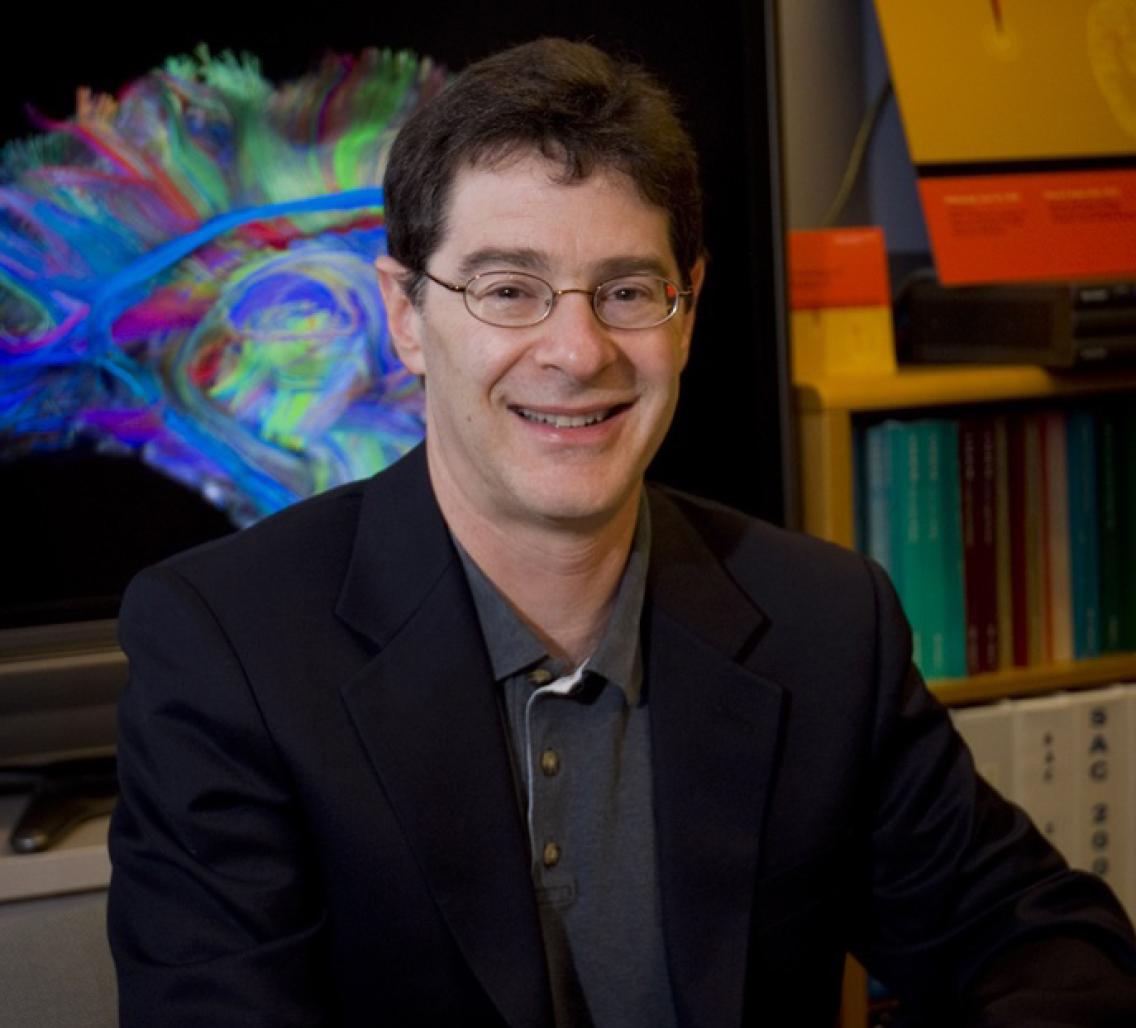Event Details:

Bruce Rosen, MD, PhD
Professor of Radiology
Harvard Medical Center
Approaches to pushing the limits of human brain imaging
Abstract: By enabling visualization of physiological processes, “Functional imaging”, broadly defined, has dramatically enhanced our ability to explore and better understand human neuroscience and human disease. The evolution of functional MRI (fMRI) in the early 1990s revolutionized the neuroimaging field, enabling dynamic measurement of the neurovascular changes coupled to changes in brain activity through high spatial resolution tomographic imaging. In the nearly 20 years since, functional imaging research has grown phenomenally, and fMRI has become the keystone of a broad array of functional imaging methods that are revealing the links between brain and behavior in normal and pathological states. Very high strength magnets and advanced large N phased-array coils now enable ultra-high spatial and temporal resolution MRI and fMRI, while advances in MR gradient coil technology have improved our ability to assess tissue microstructure and connectivity almost an order of magnitude. Beyond MRI, positron emission tomography (PET) imaging provides the means to map neurochemical events with exquisite sensitivity, and recent work suggests the potential to extend neurochemical mapping towards quantification of receptor trafficking, and measurements of metabolism and neurotransmitter release dynamics on time frames of a few minutes; tomographic optical imaging allows for portable, bedside assessment of hemodynamics and oxidative metabolism; and densely sampled whole-head magnetoencepholography can, when combined with fMRI, permit high temporal resolution mapping of both cortical and now subcortical brain activity. These evolving techniques are helping bridge the gap between systems-level human imaging and circuit-level mechanistic neural models, allowing direct visualization of the organization of human neural systems down to the columnar and laminar level (<100 micron), with temporal resolution from seconds down to tens of milliseconds.
This talk will explore a few of these advances, their growth in basic science and clinical research, and their extension from “bench to bedside”.
Bio: Dr. Rosen is Professor of Radiology at Harvard Medical School, Laurence Lamson Robbins Professor of Radiology at Harvard Medical School and Professor of Health Sciences and Technology at the Harvard Medical School-Massachusetts Institute of Technology Division of Health Sciences and Technology. He is Director of the Athinoula A. Martinos Center for Biomedical Imaging at Massachusetts General Hospital, MIT, and the Harvard Medical School. He received his PhD in medical physics from MIT and his MD from the Hahnemann Medical College in Philadelphia, and is board certified in radiology.
Dr. Rosen’s research over the past thirty years has focused on the development and application of physiological and functional NMR techniques. His recent work has focused on the fusion of fMRI data with information from other modalities, including very high temporal resolution signals using magnetoencephalography (MEG) and non-invasive optical imaging. By using fMRI tools to evaluate the linkage between neuronal and physiological (metabolic and hemodynamic) events during periods of increased neuronal activity, his studies are allowing researchers to better interpret fMRI signal changes and develop new ways to probe brain function; for instance, through "event related" fMRI studies.
Dr. Rosen leads the activities of several large interdisciplinary and inter-institutional research and training programs that focus on the development of novel biomedical imaging technologies and their application to diverse programs of basic and clinical research. These programs include the NIH/NCRR Regional Resource Center, the Center for Functional Neuroimaging Technologies (CFNT), the Biomedical Informatics Research Network (BIRN), and others.
A Gold Medal winner and Fellow of the International Society of Magnetic Resonance in Medicine, Dr. Rosen is author or coauthor of more than 250 peer-reviewed articles, book chapters, and reviews. He has mentored dozens of graduate students and research fellows through the years.